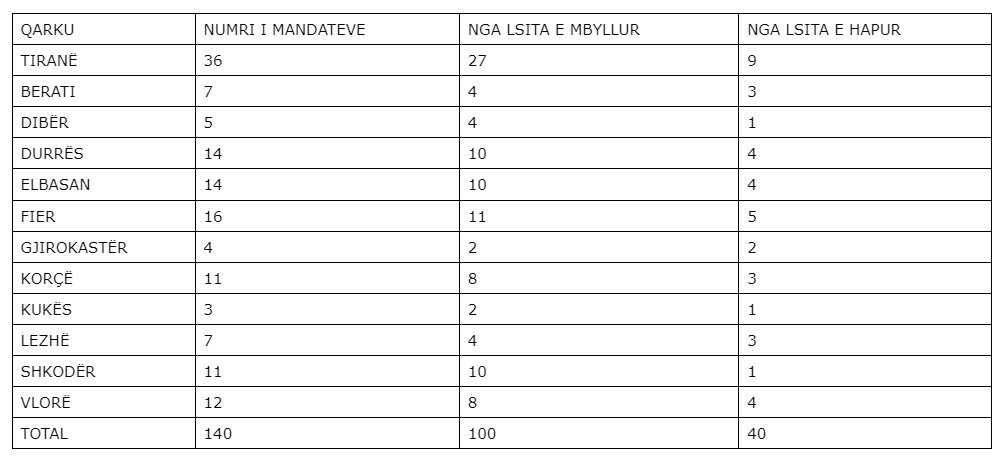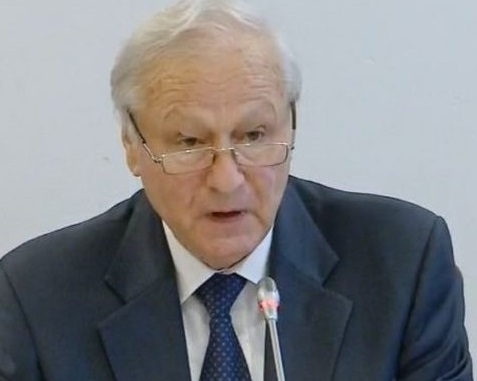The Socialist Party and the Democratic Party have approved changes to the Electoral Code that, according to their statements, expand the lists by two-thirds. However, calculations based on the 2021 election results suggest that fewer than one-third of the deputies would be elected from these open lists. Experts argue that this reform reveals a lack of genuine commitment from political parties to open lists and to electing deputies through the votes of citizens.
Jona Plumbi
‘It’s time for open lists. Let’s open the door to open lists and a stronger democracy in Albania. Citizens want open lists, and the Socialist Party is committed to delivering what they want.‘
This was the message from Prime Minister Rama’s campaign video released in July 2020, when the Socialists pledged to allow Albanian citizens to directly choose through their preferential votes which candidates would receive parliamentary seats.
Yet, experts assert that the recent amendments to the Electoral Code, agreed upon by the Socialist Party and the Democratic Party, indicate that neither party truly supports the implementation of open lists.
What does amendments to the Electoral Code Entail
According to the agreement between the two major parties, the Socialist Party (SP) and the Democratic Party (DP), the parliamentary elections in 2025 will implement a system where one-third of the candidate list will be closed and two-thirds will be open.
For each electoral district in Albania, parties will submit two lists.
Closed List
In the closed list system, the party leader determines the ranking of candidates. This list will constitute one-third of the mandates for that district. Candidates on the closed list will be the first to receive parliamentary mandates based on the party’s total votes and the order set by the party leader.
For instance, in the Tirana district, which allocates 36 mandates, parties will provide 12 candidates on the closed list. These candidates will be elected based on the votes garnered by their party, with no opportunity for voters to express preferential votes for them.
The Open List
The second list, known as the open list, will contain as many candidates as there are seats in each electoral district. For instance, in Tirana, where there are 36 seats, the parties will present an additional 36 candidates beyond those on the closed list.
Voters will be able to vote for their preferred candidate from this open list, and seats will be allocated based on the number of votes each candidate receives.
How Mandates Are Distributed
Initially, the total votes received by each party in the district will be calculated. The mandates will first be allocated to candidates on the closed list, based on the party’s total votes. Once the closed list mandates are distributed, any remaining seats will be assigned to candidates from the open list who received the highest number of individual votes.
To illustrate how mandates are distributed, we will use the results of the 2021 parliamentary elections as an example.
In 2021, the Socialist Party secured enough votes for 18 parliamentary seats in Tirana. According to the new mandate distribution formula, 12 of these seats would be allocated from the closed list. The remaining six seats would be distributed to candidates on the open list who received the highest number of preferential votes from citizens.
What experts say
Afrim Krasniqi tells Faktoje that the Constitutional forecast and the Constitutional Court’s decision, which mandated its implementation after the 2021 mandate distribution formula was abolished, called for a different approach than what was agreed upon by political parties this year.

‘The Constitutional Court’s notion that 2/3 of the list should be open pertains not to the whole list but to the concept of representation. This means that 2/3 of the portion eligible to win in the elections should be open, rather than the entire list of candidates,’ Krasniqi explains.
In practice, if we apply the results from the most recent parliamentary elections to determine the proportion of the parliament that would come from the open list under the formula agreed upon by the Socialist Party and the Democratic Party, it shows that there would be 100 deputies elected from closed lists and only 40 from open lists.

Distribution of Parliamentary Mandates According to the New Electoral Code and 2021 Election Results
In essence, fewer than 1/3 of the parliamentary seats would be filled from the closed list.
Krasniqi explains that the recent amendments to the Electoral Code, approved this Thursday, reveal that more than 2/3 of the list is essentially closed, as only the top positions (from the closed list) secure mandates.
‘The portion of the list that does not win mandates is treated by the political parties as open, which does not effectively create competition and represents a significant deviation from the Constitutional Court’s ruling,’ Krasniqi notes.
Kristaq Kume, a constitutional expert and former head of the Central Election Commission, told Faktoje that the 2020 constitutional amendments initially made it clear that no political party wanted a completely open list.
‘The Constitution mandated that open lists should be at least 2/3. From the start, this suggested that political parties would use this to avoid fully open lists,‘ Kume explains.
And indeed, this has been the case.
According to Kume, the reason for the political parties’ reluctance to fully open the lists is to retain control among the leaders and prevent the distribution of mandates based solely on voters’ preferences.
‘I read this as a show entirely aimed at serving the personal interests of the party leader, who thereby preserves the power to determine the future deputies of the party and the positions within the party leadership, allowing them to secure top spots on the list,’ Kristaq Kume observes.

Afrim Krasniqi argues that the compromise between the two major parties, the Socialist Party (SP) and the Democratic Party (DP), is one of the most detrimental in terms of democratic quality and the standards Albania should aspire to.
‘The new system blocks the entry of new political forces, hinders competition, and the candidates on the open list will either be party critics or individuals who pay for their election campaigns. This results in informal vote-seeking practices, further compromising the integrity of the electoral process,’ Krasniqi asserts.
Kristaq Kume emphasizes that the candidate list for deputies should be 100% open, noting that the current formula demonstrates that no political party genuinely wants open lists.
‘The list should be entirely open. The possibility to vote for each candidate implies a 100% open list. Moreover, the distribution of mandates among candidates should be based on their ranking according to the number of preferential votes each candidate receives,‘ Kume argues.
Considering the recent changes to the Electoral Code and the expert evaluations, we categorize Prime Minister Rama’s promise of implementing open lists by the Socialist Party as unmet.










